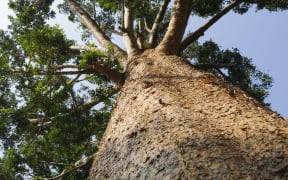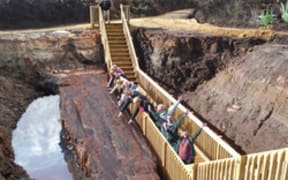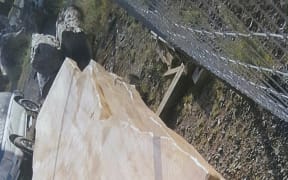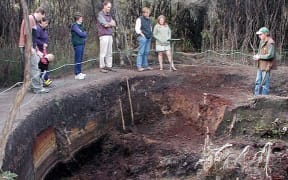It is impossible to fight unlawful disturbance of native wetlands after a recent Ombudsman's ruling on swamp kauri, a Northland conservation group says.
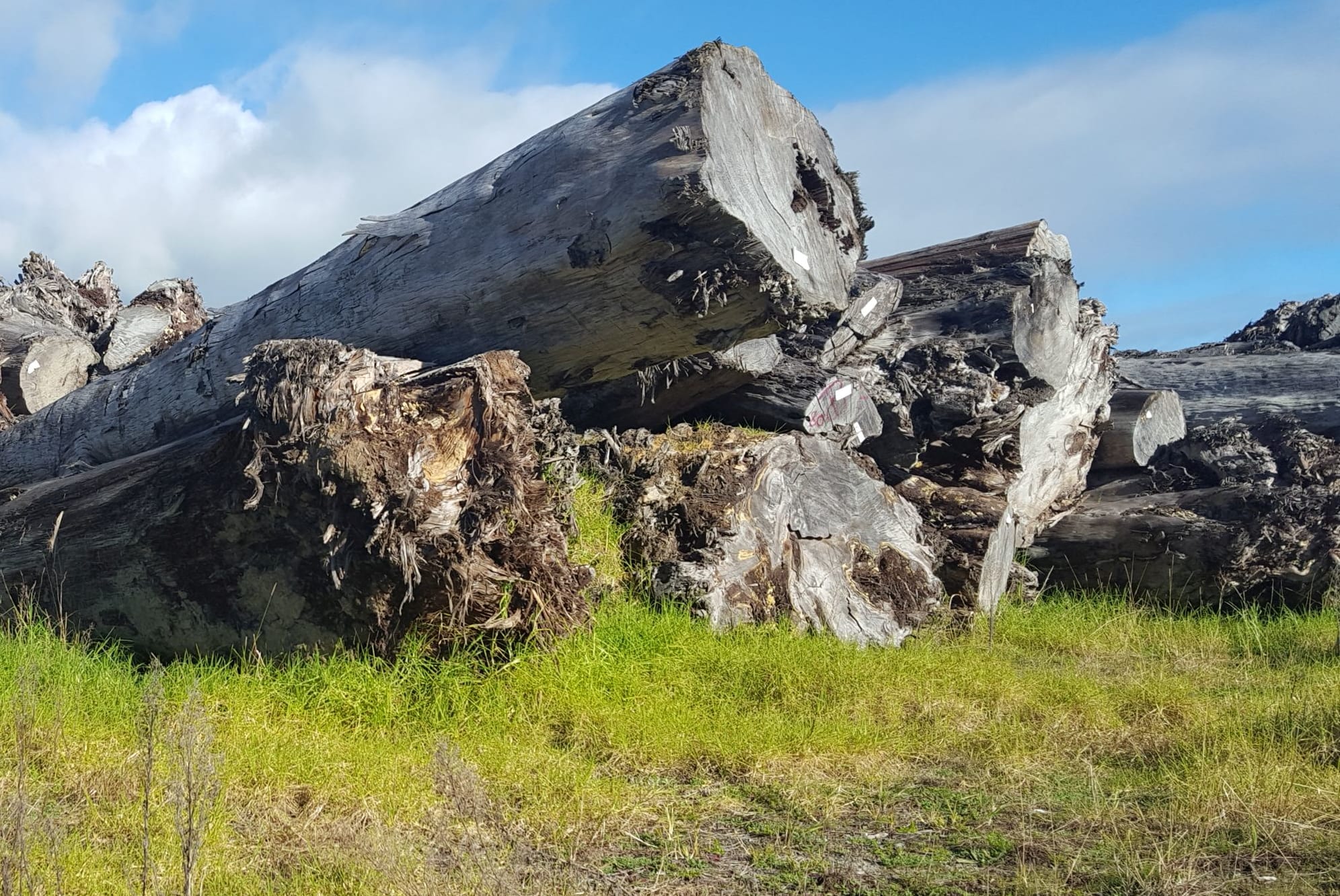
Swamp kauri logs (file photo) Photo: RNZ / Lois Williams
In a provisional decision, the Ombudsman found the Ministry for Primary Industries did not have to reveal where swamp kauri was being unearthed.
However, the Northland Environmental Protection Society (NEPS) said the ministry had in the past always provided the location of swamp kauri digs on private land.
That had allowed the conservation group to research the land on Google Earth and see whether it was formerly wetland, which could not lawfully be disturbed.
Its president, Fiona Furrell, said there had been cases where landowners had sprayed, ring-drained or bulldozed wetlands to get around the rules.
"We've always had this information," she said.
"It's allowed us to go back in Google searches and if we find what we think might be a problem we can further investigate and see what was there, [compared to] what is there at this time."
Ms Furrell said the group had found instances where MPI had given milling permits for swamp kauri dug from indigenous wetlands.
Northland Regional Council, acting on the group's reporting, had stopped the permit being used.
Without the property IDs to guide their research however, Ms Furrell said the conservation group was stymied.
The protection society appealed to the Ombudsman after MPI began redacting property locations in its responses to OIA requests last year, on privacy grounds.
The Ombudsman found MPI was entitled to do that to protect the identities of the property owners, and it was entitled to withhold information about the prices paid for the timber and who bought it.
The Privacy Commissioner, whom he had consulted, said the evidence revealed a history of individuals being personally targeted and subjected to threatening and intimidating behaviour by members of the public over their links to swamp kauri extraction in Northland.
"Circulation of the information, including those who have previously crossed the boundaries of legitimate protest, exacerbates the real risk that the private party will be subject to harassment or abuse," the Commissioner said.
Ms Furrell said members of her group were well over 60 and not in the habit of making threats to anyone.
She said the protection society did not want the names of property owners, merely the locations of the swamp kauri digs.
She had heard of one MPI officer who was baled up at a school function about the regulation of the swamp kauri trade.
However, the only serious incident she knew of was the widely-reported knife-and-bleach attack on a regional council employee on his way to court to prosecute a swamp kauri operator in 2013. No one has ever been arrested for that attack, but Ms Furrell said there was no motive for a conservationist to hurt the man.
In his interim ruling, the Ombudsman said the conservation group was entitled to enough information to reasonably evaluate MPI's decision-making, and the ministry had agreed to provide before-and-after photos of the land dug for swamp kauri.
Landowners acting lawfully were entitled to their privacy, however.
"I am mindful that landowners are making legitimate use of the regulatory regime for swamp kauri," he said.
"They are not answerable to the public for their actions in the same way as public officials. I also agree ... that the inquiry of the Auditor-General into allegations about the swamp kauri industry has addressed some of the concerns about [the] compliance regime."
Ms Furrell said before and after photos of a dig were not good enough.
She said no one apart from the conservation group was monitoring the changes to Northland wetlands over time.
"On one occasion the logger went back in again three years later and we were again able to report it and stop it," she said.
"But without the location, we can't. No one can."
She said MPI was shutting down public scrutiny of its swamp kauri regulatory regime and the Ombudsman's provisional decision was deeply disappointing.
MPI issued a statement saying its approach to Official Information requests was sound.
It refused to comment on the case because the Ombudsman was still investigating, the statement said.

